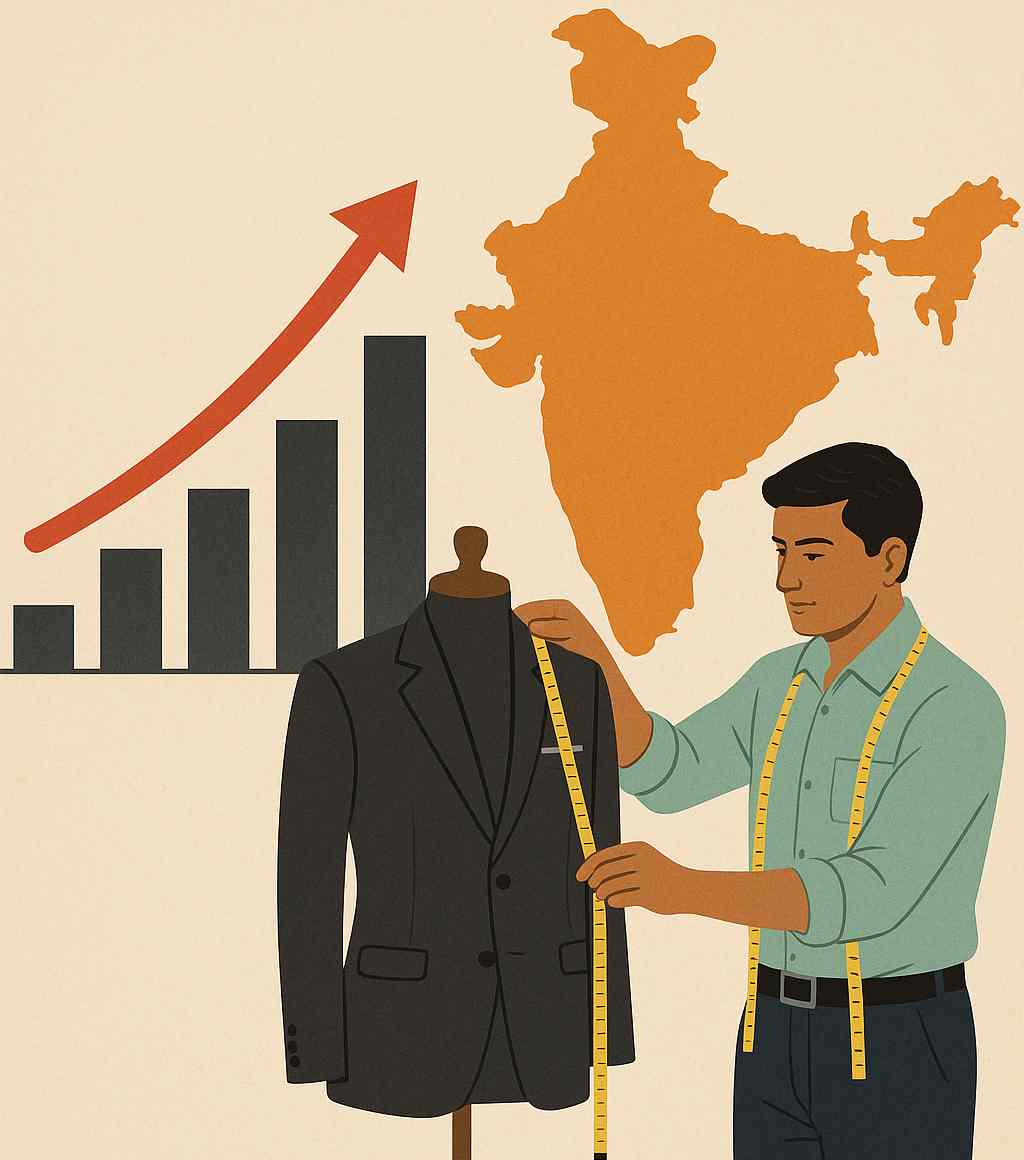The Rise of Bespoke Tailoring in India
In an age dominated by fast fashion and ready-to-wear clothing, a quiet revolution is unfolding in India’s fashion scene — the resurgence of bespoke tailoring. While the art of custom clothing has deep roots in the country’s culture, the past decade has seen a renewed appreciation for garments that are designed, cut, and stitched exclusively for the individual. Today, bespoke tailoring is not just about clothing — it’s about personal identity, luxury, and craftsmanship.
From Necessity to Luxury
Historically, tailoring in India was a necessity. Ready-made garments were rare, and each outfit was created by local tailors who knew the customer’s measurements, preferences, and style. As globalization brought in mass-produced apparel, the bespoke industry saw a temporary decline. Affordable fashion chains and factory-made clothing became the norm.
However, this convenience came at a cost — uniformity. Shoppers began to realize that while off-the-rack clothes might be inexpensive, they often lacked the perfect fit, durability, and personal touch that tailored garments offered. This realization paved the way for a comeback.
Why Bespoke is Thriving Again
The renewed interest in bespoke tailoring can be attributed to several key factors:
- Fit and Comfort: Nothing matches the precision of a garment made exclusively for your body. A bespoke suit or dress eliminates the compromises of standard sizing.
- Quality Craftsmanship: Bespoke tailoring is an art. Each piece is made with meticulous attention to detail, ensuring longevity and premium quality.
- Personal Expression: Custom clothing allows clients to choose fabrics, cuts, and designs that align with their personality and occasion.
- Sustainability: In a world concerned about waste and environmental impact, bespoke clothing offers a more sustainable choice — made to last, not to discard.
The Indian Twist to Bespoke Tailoring
What sets India apart is its fusion of tradition and modernity. Indian bespoke tailoring often combines Western cuts with traditional fabrics and embellishments. A business suit may be stitched in pure Indian wool, or a sherwani may be designed with contemporary silhouettes.
This hybrid approach appeals to a new generation of clients who want cultural authenticity without sacrificing global style. Wedding markets, in particular, have embraced bespoke tailoring for both grooms and brides, making personalized design a central part of the celebration.
The Darzi Group: A Pioneer in Modern Bespoke
Among the names driving this revival is The Darzi Group. Starting as a humble tailoring house in Rajouri Garden, New Delhi, The Darzi Group quickly rose to prominence by blending innovation with craftsmanship. Founder Mr. Mital was ahead of his time, introducing computerization to streamline and perfect the tailoring process in Delhi — a move that revolutionized the local industry.
Recognizing the growing demand for custom ethnic wear, The Darzi Group launched Studio Firang in 2001, offering bespoke sherwanis, bandhgalas, and other traditional garments with a global twist. Today, they are celebrated for their ability to create both contemporary formalwear and timeless ethnic ensembles, all with the unmatched precision of true bespoke tailoring.
The Bespoke Process
For many, the charm of bespoke lies not just in the final product, but in the journey:
- Consultation: Understanding the client’s needs, style, and purpose for the garment.
- Fabric Selection: Offering a curated range of premium fabrics from around the world.
- Measurement & Pattern Making: Creating a unique pattern for each client, ensuring a perfect fit.
- Fittings & Adjustments: Multiple fittings to fine-tune the garment to perfection.
- Final Delivery: A piece that is one-of-a-kind, tailored for both fit and personality.
Looking Ahead
Bespoke tailoring in India is no longer just for the elite — it’s becoming accessible to a wider audience that values individuality and quality. As more people move away from fast fashion, the demand for personalized clothing is set to grow. Digital tools now allow clients to book consultations online, select fabrics remotely, and even visualize their garments before production.
The future of Indian bespoke tailoring will likely see even greater integration of technology with traditional skills — a perfect marriage of efficiency and artistry.
Conclusion
The rise of bespoke tailoring in India reflects a broader cultural shift — a desire to stand out, value craftsmanship, and embrace sustainable fashion choices. Brands like The Darzi Group are not only preserving this heritage but redefining it for the modern age. In a world of mass-produced clothing, bespoke tailoring reminds us that style is personal, and the best garments are those made just for you.



Sorry, the comment form is closed at this time.